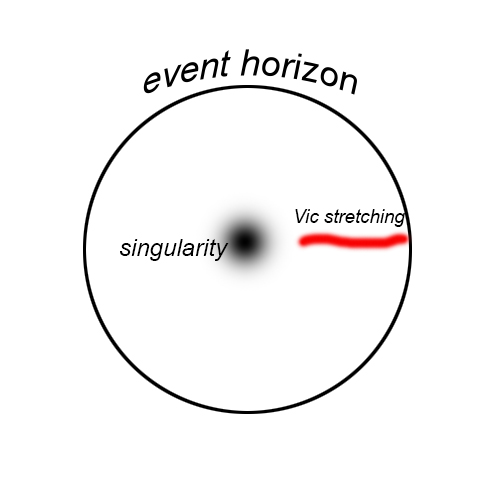Ok, so after I've read a few (around 50 :P ) articles on subject of black holes. There are a few gaps in my understanding of it. Please follow my reasoning, I bet there is a mistake in there, and I need to know where is it.
So, First thing, black hole has an event horizon, and a singularity which is supposed to be something really small at the center of it. But an event horizon has a certain measurable radius, and singularity is practically a dot. So there is some space between it.
Second thing, time inside a black hole goes slower. Lets say a guy Vic (victim) is falling into a black hole (traveling towards event horizon) and a guy named Obs (observer) is... well observing.
Here is the question finally: When Vic passes the event horizon, he gets stretched, starts decomposing ('n such things), but for Obs, he does so very slowly. And that slowliness increases. Now, after Vic crosses the event horizon, he still has some space to travel between event horizon and singularity (because e. horizon has radius, and I bet my mistake is somewhere around here). Since time is slowing down from Obs point of view, Vic will not reach singularity for Obs lifetime, and possibly many Obs lifetimes. He will just keep slowly moving towards it. At least that is my understanding. This means that most matter that fell into a black hole (in recent times), still hasn't reached the center of it. So is this true?
Add rotation of a black hole to a whole thing (from our perspective of passage of time), and I'm dumbfounded.
P.S.
for better il lustration, I've made a small picture of what I mean.
lustration, I've made a small picture of what I mean.
